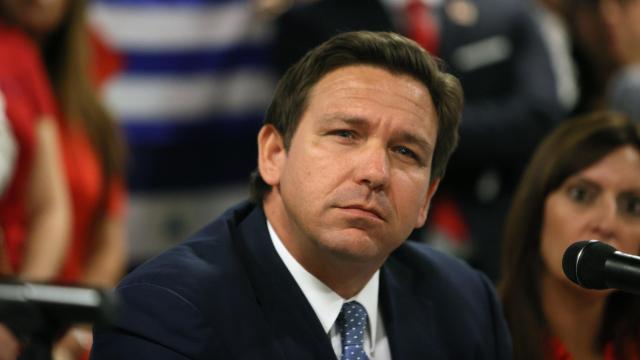Florida Governor Ron DeSantis is upset at Twitter’s attempt to block Elon Musk’s $US43 ($60) billion attempted hostile takeover of the company.
DeSantis, no stranger to publicly menacing tech companies, is threatening to use his power as governor to inflict punishment. Is he sure how he’ll do it? He is not. In a press conference on Tuesday, the governor said the investment managers in charge of Florida’s pension funds were looking into ways the state could hold Twitter accountable for “breaching their fiduciary duty” via the shares of Twitter that already comprise the funds.
“They rejected [Musk’s takeover attempt] because they know they can’t control Elon Musk,” DeSantis said. “They know that he will not accept the narrative and that their little play toy of Twitter, it would not be used to enforce orthodoxy, and to basically prop up the regime and these failed legacy media outlets. And so that’s why they did it. It was not, in my judgment, because it wasn’t a good business deal.”
Last week Twitter’s board voted unanimously to adopt a limited duration shareholder rights plan that would let shareholders buy additional shares at a discounted rate if any entity, person or group (like, say, Musk) accrued more than 15% of the company’s shares. These tactics are one example of a firm enacting a “poison pill” that would turn an outright buyout by Musk into a financial disaster.
How exactly DeSantis would go about inflicting Florida’s wrath isn’t exactly clear. During the press conference, the Republican suggested the state could have standing to take action because the state’s pension fund owns shares of Twitter. Not missing a moment to take a jab at a social media company, DeSantis slammed Twitter’s stock, which he described as an “injury” to the state’s pension fund.
“It hasn’t been great on returns on investment,” DeSantis said. “It’s been pretty stagnant for many many years.”
This isn’t the first time DeSantis has had a public bone to pick with Big Tech firms. Last year, the governor led the charge on a sweeping, first of its kind anti-deplatforming legislation that would attempt to issue fines against companies like Twitter for removing public officials from their platforms. The bill, which was seen partly as a response to Twitter’s removal of former President Donald Trump following the January 6 Capitol riot, would have fined offending platforms $US25,000 ($34,705) a day, or $US250,000 ($347,050) a day if the candidate were seeking public office. Unsurprisingly, a federal judge issued a preliminary injunction blocking the legislation months later, citing serious First Amendment concerns.
“Like prior First Amendment restrictions, this is an instance of burning the house to roast a pig,” U.S. District Judge Robert Hinkle said at the time. “Balancing the exchange of ideas among private speakers is not a legitimate governmental interest. And even aside from the actual motivation for this legislation, it is plainly content-based and subject to strict scrutiny.”
Editor’s Note: Release dates within this article are based in the U.S., but will be updated with local Australian dates as soon as we know more.
